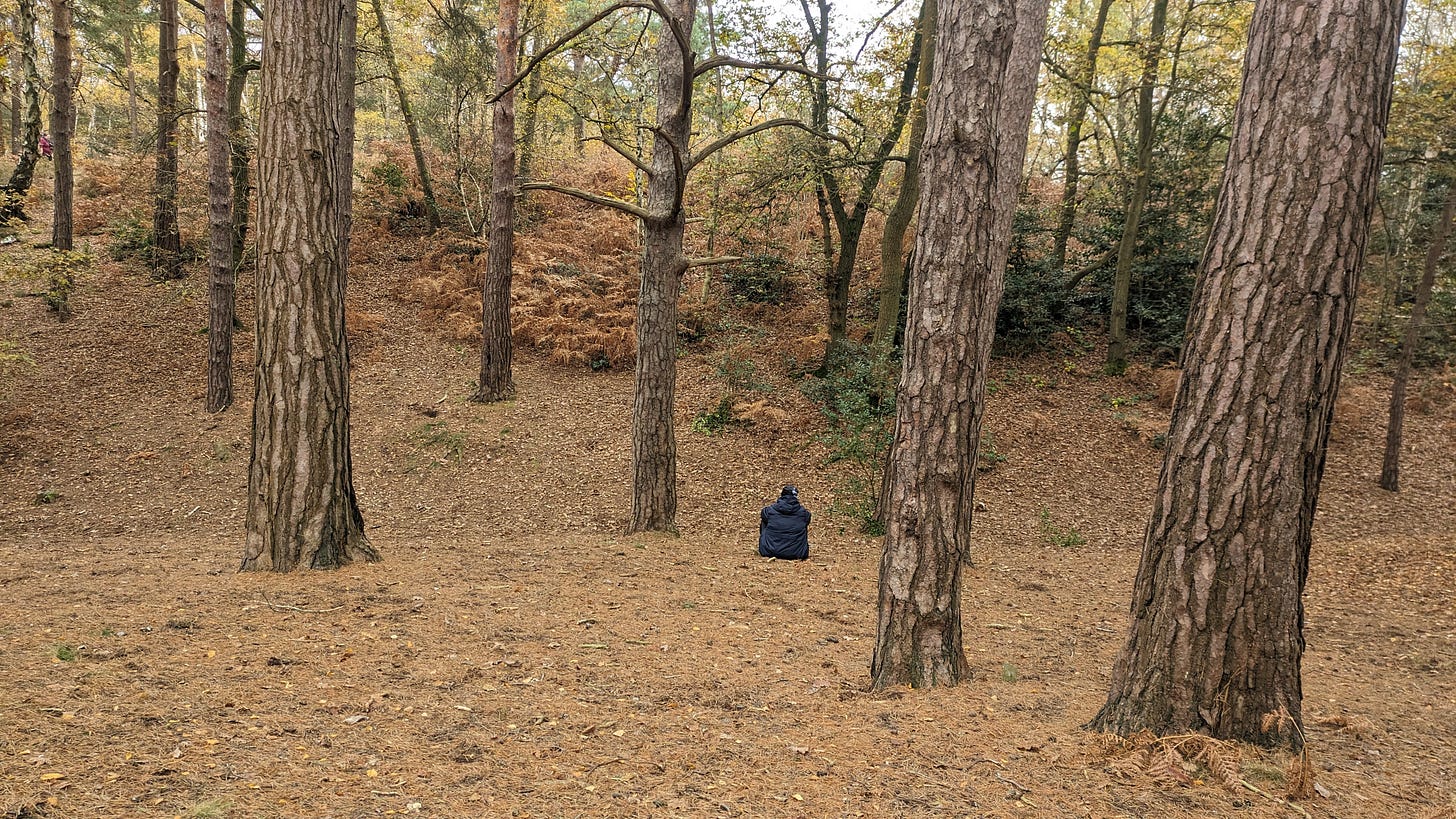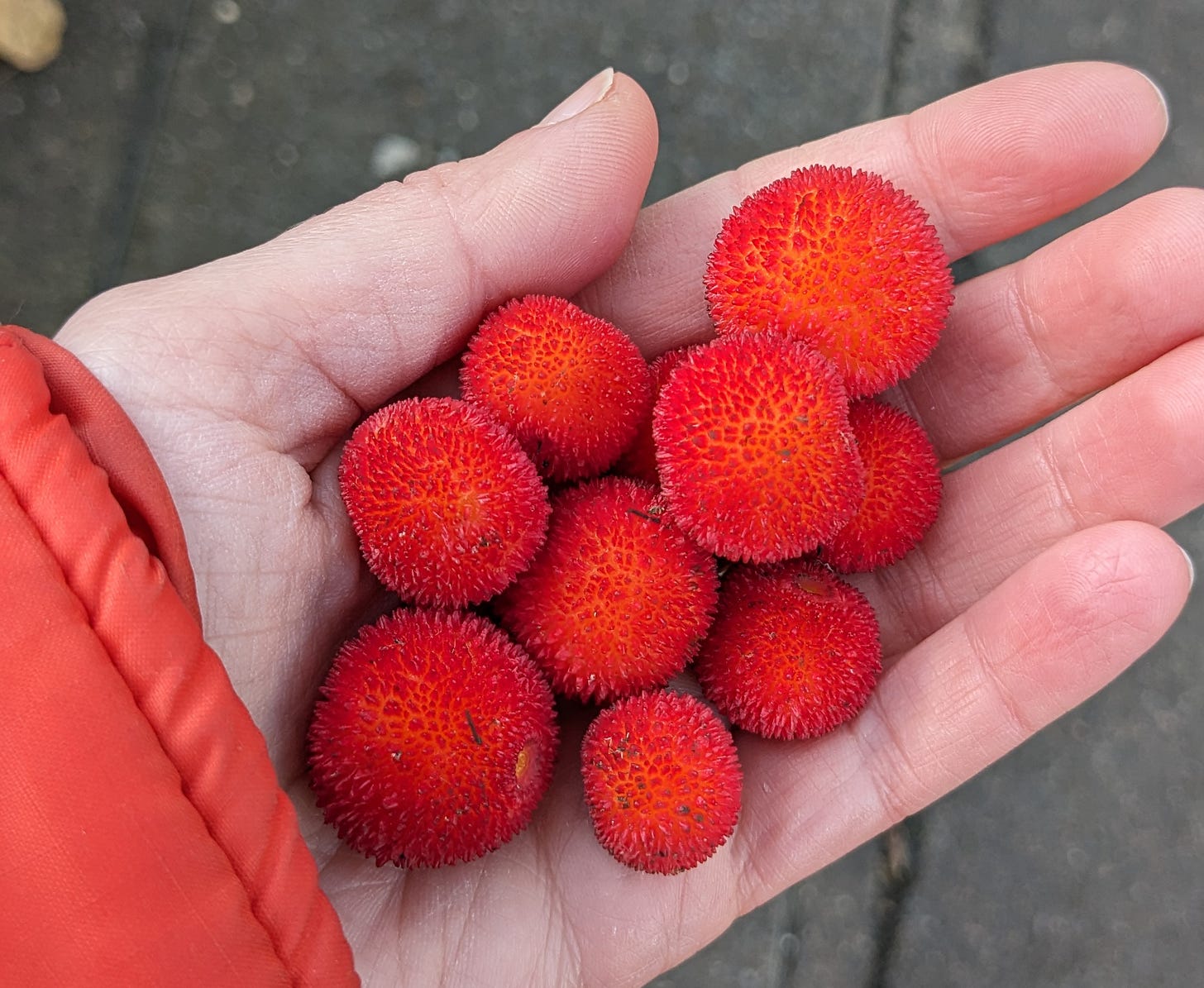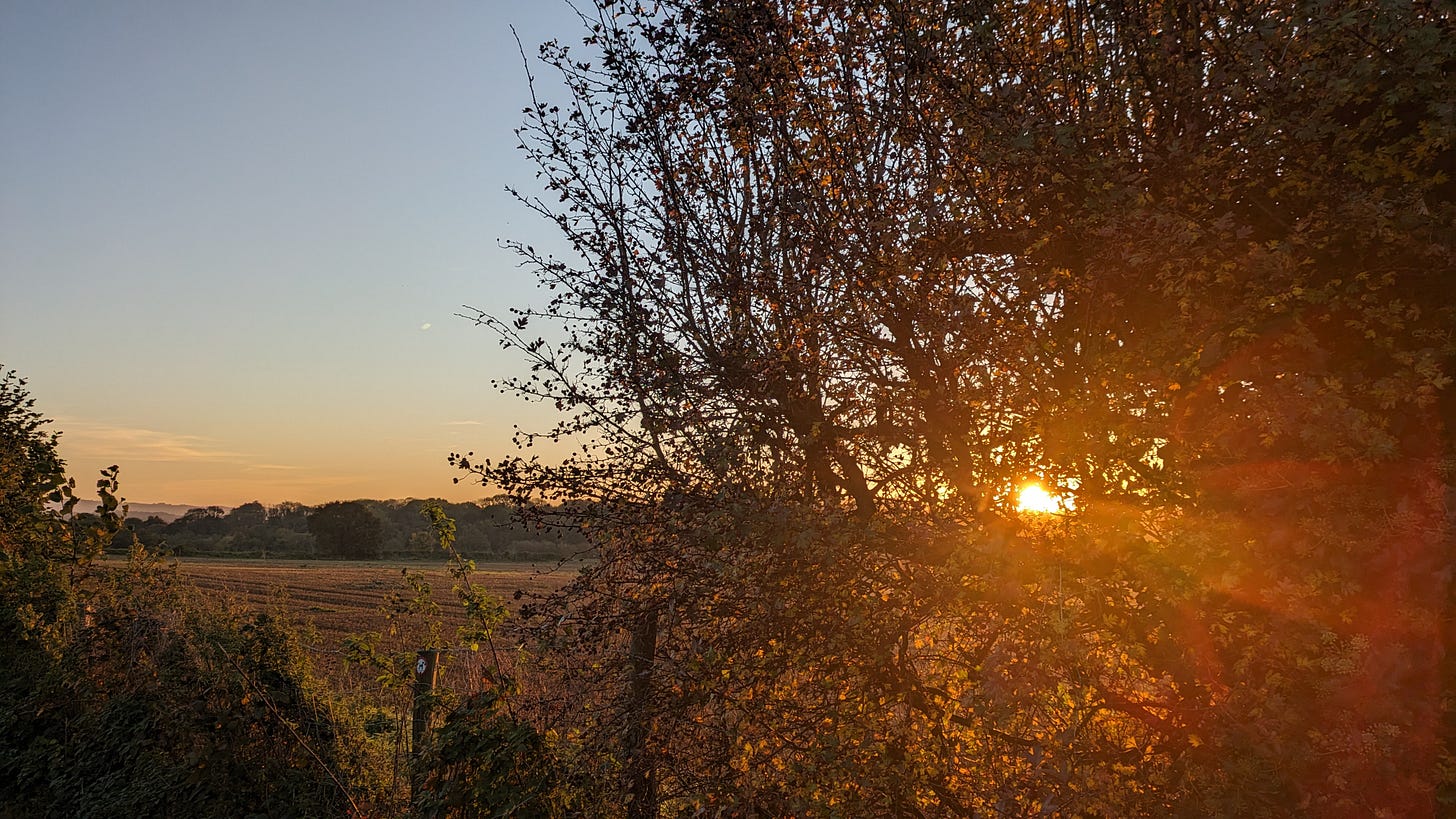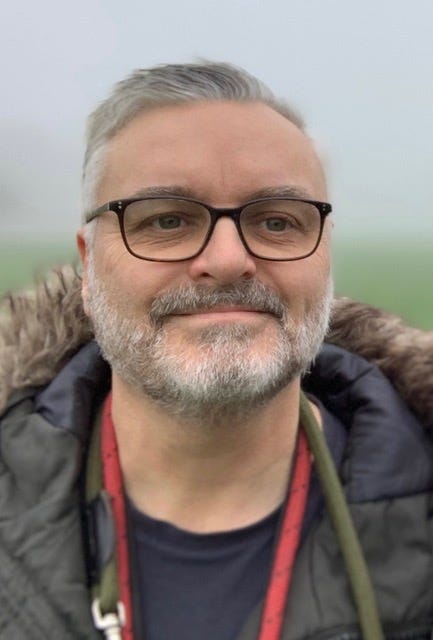This article was originally published in 2021, in the ‘Grow’ issue of The Procrastination Paper, a mini mag I used to work on. Andrew has kindly given permission for it to be posted here too. I met Andrew back in 2019, walking my dog in my local park and he became a brilliant friend. I’d often go out hoping I didn’t bump into anybody, then bump into Andrew and return home feeling so much better for it. His chats were always a great comfort to me and I miss walking with him now we’re no longer neighbours! If you work at home on your own and have introvert tendencies like me…. I highly recommend getting a dog!
As a child, my grandmother asked me what I wanted to be when I grew up. Coming from a family of military men, seamstresses and dock workers, you can imagine her interest when I answered, “A monk who keeps bees”.
I had no idea where it came from either… but as I approach my mid 50s, I do now realise it has formed a kind of roadmap. I am not a religious person, so I never received the calling to become a monk, but I do crave and work towards a simple life, and in my work as a psychotherapist I hear people’s confessions, innermost desires and doubts, and sometimes a calling to a more spiritual life. One might see these as monkish qualities.
As for bees, I recently took a bee keeping course and soon realised the way most bees are managed – from commercial enterprises to your local beekeeper - is not for me. Along the way I also discovered and researched CCD (colony collapse disorder), a phenomenon spreading across the globe where thousands upon thousands of hives just die, the bees disappearing leaving the queen and a few helpers behind (check out the documentary Vanishing Of The Bees).
This led a moment of awakening for me: the bridging between my child self and his simple love of bees, the ability of thousands of bees to act as one in the best interest of the whole hive. And, my adult self who was concerned with what CCD symbolised, the human-made catastrophe that is climate change.
I was left wondering what the heck is going on with the planet, and why have most of us been denying it? For me, this is a question for therapy.
The type of psychotherapy I provide is mostly open-ended, long term, and analytical, working with unconscious processes. Both me and the client are exploring ways to connect in relationships and bring about psychological growth. But bringing together my awakening around climate change and my work, I started to look into nature psychotherapies.
Ecotherapy, Nature Therapy, and Ecopsychotherapy are all terms for a relatively new approach emerging from the Ecopsychology movement of the 1960s. The main tenet is that our disconnection from nature has left us in feeling alone, powerless, and increasingly unwell. There is a sense that nothing will help, and that it’s too late. The circle goes around and around. Guilt, denial, and depression follow.
Nature therapies aim to move us from Eco Anxiety to Eco Awareness, through improving and trusting our senses, our gut instinct, and building empathy for all life, human and non-human alike. They enable you to think about how your lifestyle impacts on the planet, and most importantly reconciling the sense of guilt, powerlessness, anger or frustration we may feel. If accomplished, this can leave one feeling more aware of the full range of emotions and able to tolerate them. From this position we can process the guilt and grow into a new place of activism – whether that is committing to shopping locally and in season, never taking an airplane again, only investing is eco-ethical ISAs, or gluing your hand to a bank window.
I would say that building empathy is at the core of the approach, and you may like to try this little exercise…
Blueberry Empathy: Take a single berry. Look at it closely. How many colour variations can you see? Close your eyes and smell it, deeply. Place it in your mouth and gently roll it around. Press with your tongue, noticing the pressure as it bursts in your mouth. What can you taste? What memories and associations come to mind as you eat it?
Now ask yourself, where did the berry come from? Did you grow it at home, or was it imported by the supermarket? On a map, find the country where it came from. How did it get to you? What packaging, gases, refrigeration and transport was used to bring it to your mouth? Where did the water come from that nourished it? Rain, mechanised irrigation? Who do you imagine picked it? What is their life about?
Take the answers to these questions and allow the awareness to nourish your ability to empathise with that one single berry.
I also offer free-of-charge forest bathing sessions. Forest bathing is not psychotherapy but is an opportunity to restore trust in your senses. We walk slowly through nature as you are invited to try different exercises to restore the connections and soak in the forest atmosphere. Ideally forest bathing takes place in large woodlands and forests where you can benefit from the dense canopy cover and the various phytoncides, biodiverse microbes, and negative ions released by the trees. But as most of us don’t live near such abundant green spaces, I have adapted forest bathing for our urban green spaces and parks.
I would say that the benefit in these small groups is allowing oneself the time to drop out from day to day life, even if only for a couple of hours, moving away from our usual distraction techniques that fuel our denial – work, email, social media, shopping, gaming, drinking alcohol, arguing, etc, to grow our connection to nature, to Mother Nature.
For some, it can be very powerful, moving and life-affirming.
Here are a few tips for connecting to nature you can try anywhere:
Concrete: Go outside to a place that is mostly concrete or tarmac. Look around, notice and get to know any plant life poking through tarmac. Connect with and imagine the energy and life force taken to push through the concrete.
Buddy: Find a tree, shrub, or plant. Pick a single bud and notice it in fine detail. Return to the bud each day and see the change over the seasons.
Common plants: Next time you are out walking, notice a common, everyday plant. Find out as much as you can about the plant: is it edible, does it have medicinal use? Does it feature in folklore, or a fairy-tale (trust me, you’ll never look at stinging nettles the same way! hint: The Wild Swans).
Deer ears: Use your hands to cup both ears. Notice how the sound changes. Pay attention to all the sound around you – natural and human-made. Play with filtering parts out and then focus on just one natural sound, maybe birdsong, the wind, or moving water. Stay with it for as long as you can.
Befriend a tree: Whether on a verge, in a garden, park, or wherever, choose a tree. Ignore others around you and what they may be thinking about you. Touch the bark, look at it from several angles. Sniff it, touch it with your nose. As you reach your arms around the tree, hug as if you are hugging someone you love. Place your ear to the tree – what can you hear. Imagine the sap moving around the tree truck, the roots feeding and nourishing every leaf. Where do the roots go?
About Andrew Jenkins
Andrew Jenkins is a psychodynamic psychotherapist in private practice based in Hatton Garden, Beckenham, and outside at various locations. Previously specialising in addictions, personal and organisational trauma, a growing awareness of the climate crisis has led to a recent shift in the types of therapy he provides.
You can find out more about Andrew’s work on his website and read more about his relationship with the climate crisis here.
You might also like…
Having re-read this article by Andrew, I realise how much of his words and techniques I have taken on. I now think he deserves full credit for this post (and probably several others of mine!):
Make a new buddy
I wasn’t sure what to write about this week, so I figured I’d just see what caught my eye on my dog walk yesterday morning. This bud, found lying on the path in front of me, gave me the inspiration for today’s prompt…













Thank you for your article. It confirms what I believe about nature. It is healing. Whenever I’m anxious or upset I go walking in nature. I’m going to look for a bud and watch it grow! Love the idea.
An interesting & thought provoking article …… thanks Andrew & Zabby.
I often question people’s disconnection with nature & wonder the influences/timing etc.